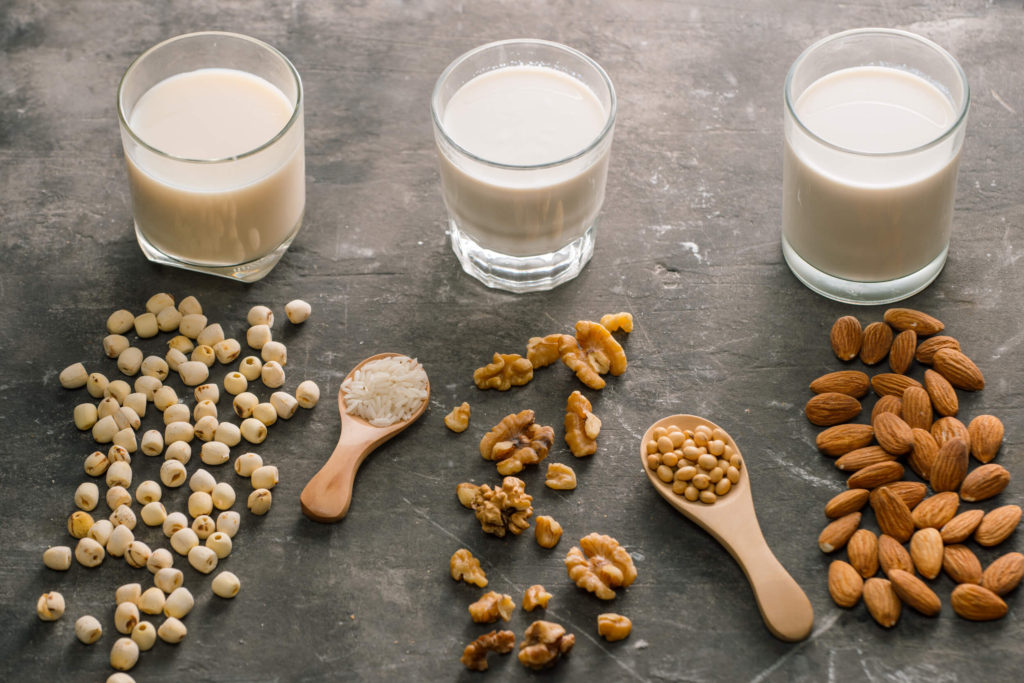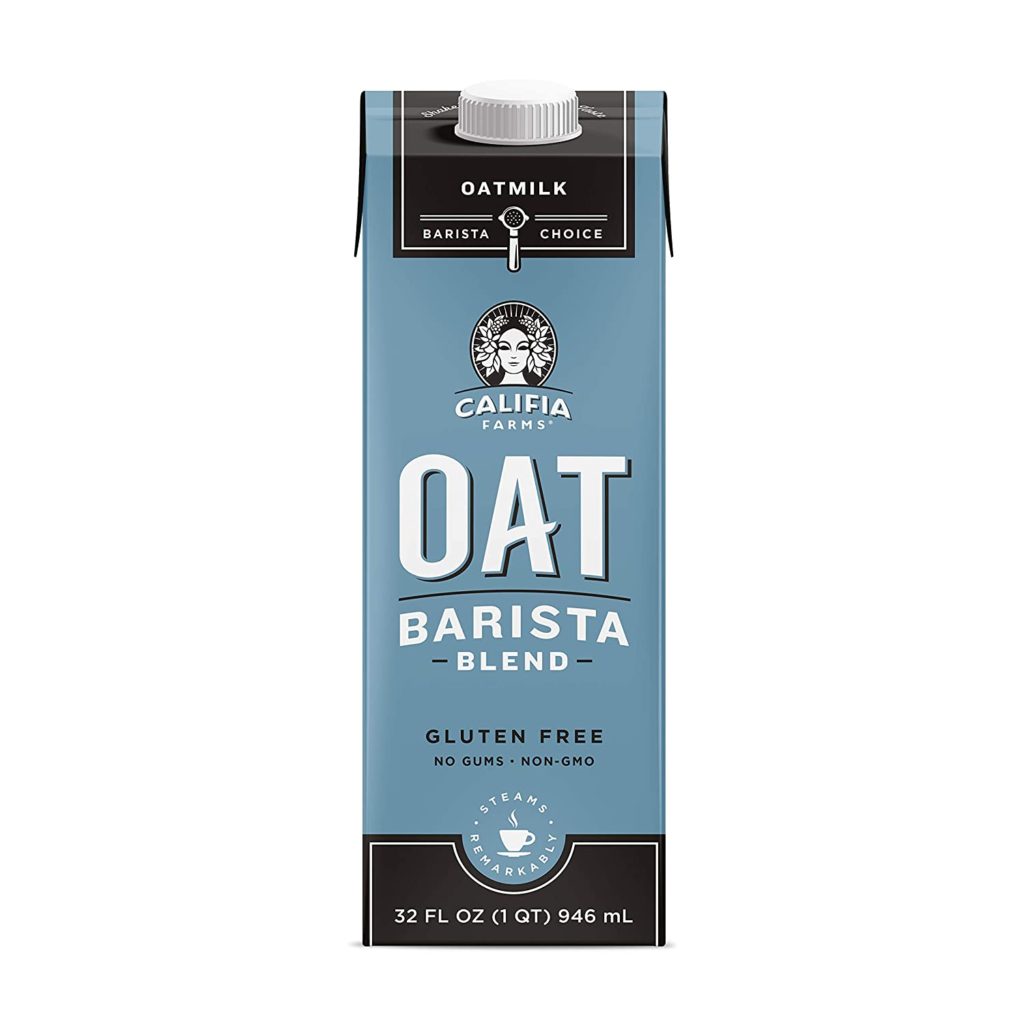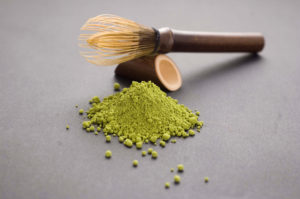Drinking cow’s milk may not be possible if you are vegetarian, have allergies, or have lactose intolerance. Additionally, processed cow’s milk – which is the only milk available in the stores – leaves a significant mark on the environment, which is why environmentally conscious people are moving towards plant-based milk sources.
If you’re thinking about ditching cow’s milk and wondering what to use, read the following to learn about suitable alternatives to cow’s milk.
Almond Milk
Almond milk is one of the most popular cow’s milk alternatives, which is made by blending almonds with water and then straining out the solid materials. Today, you can find almond milk in most grocery or convenience stores, both in sweetened and unsweetened varieties.
Almond milk is way healthier than cow’s milk, with just 2.5g of fat (unsaturated fats), 1g each of protein and carbohydrates, and 30 calories per cup. One cup of cow’s milk has 150 calories, 12g of fat 8g of carbs.
Use unsweetened almond milk if you should be taking less sugar. You can also quickly learn to make your own almond milk instead of the more expensive store-bought varieties.
Cashew Milk
Cashew milk is another nut-based milk that is lactose-free and rich in vitamin K and iron. Every cup of unsweetened store-bought cashew milk has just 40 calories and 3g of carbs. You can also make cashew milk at home to save money. It is an excellent alternative to cow’s milk in cake and cookie recipes.
Hemp Milk
Hemp milk is a plant-based milk alternative to cow’s milk that has a creamy and nutty flavor. It is an excellent source of omega fatty acids, protein, fiber, antioxidants, and as well as calcium. Hemp milk also offers many of the same benefits as almond or cashew milk and is low in carbs.
Oat Milk
If you are looking for milk that has no lactose, is low in calories and carbs, and is high in protein (oats contain all essential amino acids), oat milk might be the best option for you! Oat milk also contains omega-fatty acids as almond milk does. It is naturally very sweet and has a creamy flavor.
Soy Milk
Soy milk is made from water and soybeans, although store-bought varieties may include some thickeners for better shelf life and consistency. Each cup of unsweetened soy milk has 80-100 calories, 7g protein, and 4g each of carbohydrates and mostly unsaturated fats.
Fortified soy milk is an excellent source of vitamins A, D & B12, protein, potassium, and calcium, and you can get fermented or probiotic soy milk, which is excellent for hypertensive people. However, soy milk should not be taken if you have thyroid disease. There is research showing that using too much soy milk can affect fertility in men.
Rice Milk
Rice milk is made from milled rice and water, together with additives that improve consistency and longevity. Rice milk is the best option if you have several allergies, as it is the least likely to cause allergic reactions among the plant-based milk alternatives. You can try using rice milk if you have soy, nut, or dairy allergies.
Each cup of rice milk has 120 calories, 22g of carbohydrates, and 2g of fat. Fortified rice milk has calcium and Vitamin D, although these are not natural to rice. Because of its high carbohydrate content, rice milk isn’t recommended for people with diabetes or on low-carb diets.
Macadamia Milk
Macadamia milk is rich in calcium, magnesium, and other minerals. It also contains more potassium than a banana or an orange! Studies show that macadamia nuts are one of the highest plant sources of antioxidants which are so important for our overall health. The best part about Macadamia milk? It’s delicious!
Coconut Milk
Coconut milk is an excellent source of dietary fiber, healthy fats, and other nutrients. It has a unique flavor that many people enjoy! It also contains amino acids like arginine – an essential building block for the body’s natural defenses against viruses, bacteria, and yeast/fungi.
Coconut milk is a great option if you are lactose-intolerant or want to avoid dairy but keep in mind that it contains more calories than other plant-based milks.

Pea Milk
Pea milk is one of the newer plant-based alternatives to cow’s milk. It contains all nine essential amino acids, making it a complete protein source. Pea milk also has high levels of both calcium and Vitamin D for strong bones, muscles, teeth & nails!
However pea milk does have more carbs than other plant-based milk, so if you are looking for milk with fewer carbs, pea milk might not be the best option.
Quinoa Milk
Quinoa milk is the latest trend in plant-based milks. It contains no lactose or cholesterol. Quinoa has many minerals like calcium, magnesium, sodium, potassium, and iron that are essential for our bodies to function properly. It is also an excellent plant-based source of protein.
VISIT TERRASOUL STORE FOR THE BEST QUALITY RAW NUTS

NUT MILK RECIPE:
Ingredients:
- One cup of raw cashews, almonds, or other nuts. You can also use a combination of different types of nuts and seeds (almonds, hemp seed, flaxseed) if you like.
- Four cups of water for the initial soaking process. After that, only two cups will be needed per four to six cups of nuts.
- A pinch or two of sea salt
- One tablespoon to one cup sweetener such as dates, honey, maple syrup (coconut nectar is also a good option) Skip if you are looking for a low-calorie drink.
- A little extra water to thin the milk if necessary
Directions:
- Soak one cup of raw cashews, almonds, or other nuts for eight hours.
- Rinse and discard the soaking liquid.
- Put four cups of water in a blender with two cups (or less) of soaked nuts and blend until smooth and creamy.
- Add sea salt and/or the sweetener of your choice.
- Thin if necessary.
- Pour the mixture into a nut milk bag and squeeze to get pulp-free milk.
Save the pulp to use it in a recipe like this one==> RAW CHOCOLATE ALMOND TRUFFLES
This nut milk will last in the fridge for about five days.
Final Thoughts
There are many more plant-based milk alternatives, including ‘milk’ from oats, coconuts, and hemp plants, among others. Each of the milk alternatives has different nutritional benefits, so it’s essential to mix them up so that you have a wholesome diet (except where there are allergies). Check the nutritional information for each milk and fortify any missing nutrients with the rest of your food.
YOU MAY ALSO LIKE:
HOW TO CREATE HOLISTIC NEW YEAR’S GOALS THAT WILL LIGHT YOU UP EVERY DAY
We’ve all heard the axiom that life is a journey, not a destination. Forming new goals around this sage piece of…
IS MORINGA REALLY A “MIRACLE TREE”?
Moringa Oleifera is one of the most commonly cultivated species of the Moringaceae family. It’s also known as the drumstick tree…
WHAT YOU NEED TO KNOW ABOUT YOUR THIRD EYE CHAKRA
Seemingly shrouded in mystery, many people have heard of this mysterious energy point but aren’t quite sure what it actually is…
USING RHODIOLA TO MANAGE STRESS
By Dr. Edward Group DC, NP, DACBN, DCBCN, DABFM For more from Dr. Group CLICK HERE Mental wellness is the cornerstone…
HOW THE US HAS CHANGED THEIR EATING HABITS OVER THE YEARS
By Kevin Jones It’s no secret that the U.S. is one of the most overweight countries in the world. With 34.3 percent of…
WHAT DRY SKIN BRUSHING CAN DO FOR YOU
Dry skin brushing has been growing in popularity for a while now. Health experts often discuss its health and beauty benefits….










